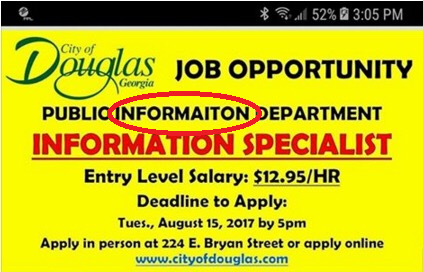 It’s time for “Confusing Words of the Week” where I take a set of two or three words that get confused and give you definitions and try to give you a memory trick to help you remember when to use which word. If you have words that confuse you, use Ask PTB or send an email to proofthatblog@gmail.com and they may appear here soon!
It’s time for “Confusing Words of the Week” where I take a set of two or three words that get confused and give you definitions and try to give you a memory trick to help you remember when to use which word. If you have words that confuse you, use Ask PTB or send an email to proofthatblog@gmail.com and they may appear here soon!
This week’s words are:
Cite (v) – to quote; to summon
Sight – a view; vision
Site – a place
Tips to help you remember the difference:
Cite is related to citation. It is quoting case material.
Sight is seeing with your eyes
Site is a place. Let’s say IT is a place.


 Follow
Follow





